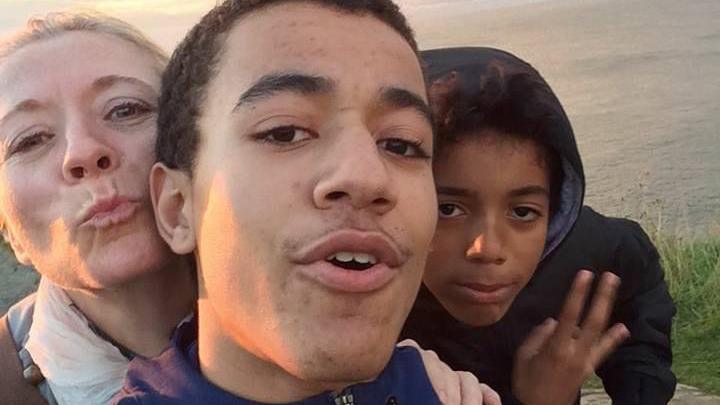Boxer 'lucky to be alive' after cardiac arrest
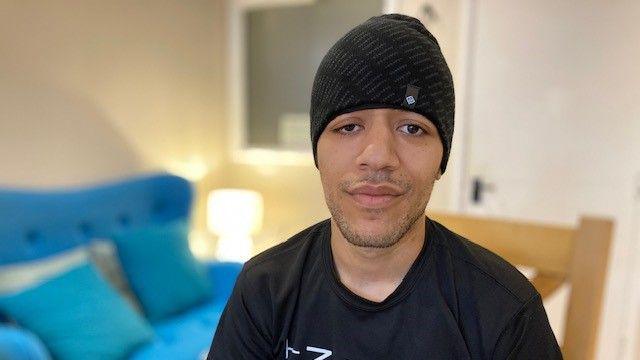
Miles Sarpong is from Wallingford but now lives in London
- Published
"Even now I'm having to process it, I still can't get my head around it."
Myles Sarpong, from Wallingford, Oxfordshire, said he was "lucky to be alive" after suffering a cardiac arrest during an amateur boxing match.
The bout left him with a bleed to the brain, meaning he had to spend ten days in a medically-induced coma.
Just three weeks after coming out of his coma, and only four days after being discharged from hospital, Myles took on a five-mile (8km) run alongside his family.
When asked how he found the run following his lengthy spell in hospital, Mr Sarpong cheekily replied: "Easy."
"It's nice to get out, get active again - before I was just stuck in a bed, I couldn't walk, and now I can run and get out in the wilderness. It's nice."
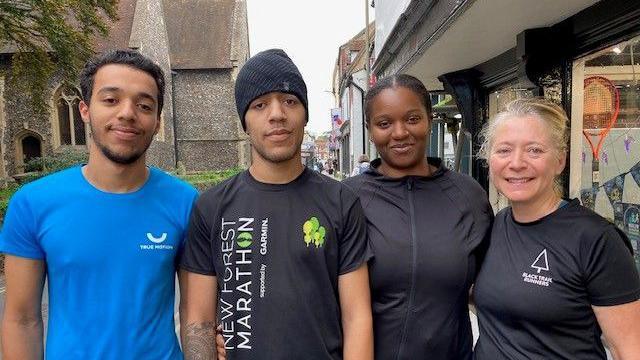
He completed a five-mile run alongside his brother Lewis, girlfriend Hannah and mum Nina
On 5 October, Mr Sarpong took part in only his second competitive white collar boxing fight in London.
White collar boxing is completely amateur but follows professional rules - including a lack of head guards. It is not overseen by a governing body and is considered unlicensed.
During the second round of his bout, Mr Sarpong received a blow to his head and suffered a cardiac arrest.
His mum Nina, brother Lewis and girlfriend Hannah were all in the audience at the time.
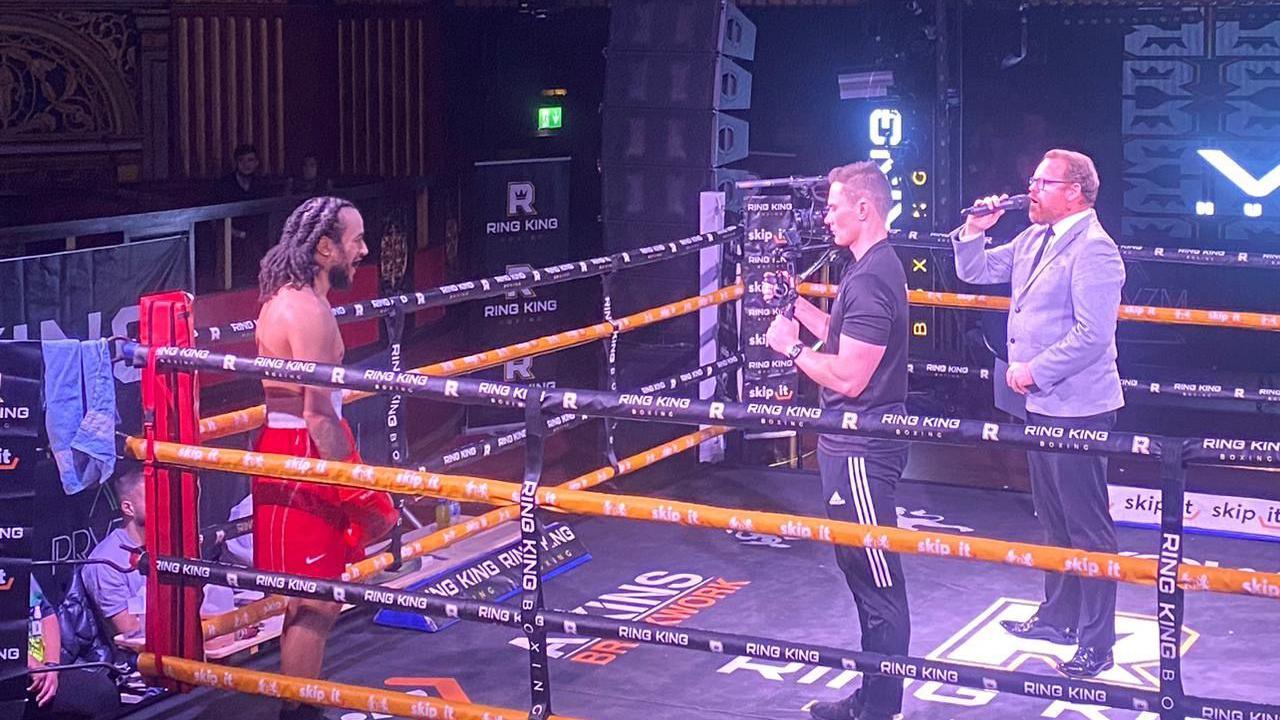
The 22-year-old was seriously injured in his fight on 5 October
The 22-year-old was rushed to St George's Hospital where surgeons carried out an emergency operation to remove a bleed on his brain.
"I literally remember warming up, weighing myself and the rest is just gone," he said.
"My next memory was probably being fully conscious, like, eight days ago - I remember waking up and seeing my mum and girlfriend.
"I didn't actually know anything that happened to me - I thought I made it throughout the whole fight, it's all really a blur."
Having made a full recovery, Mr Sarpong, who lives in London, said he now felt "like it never happened".
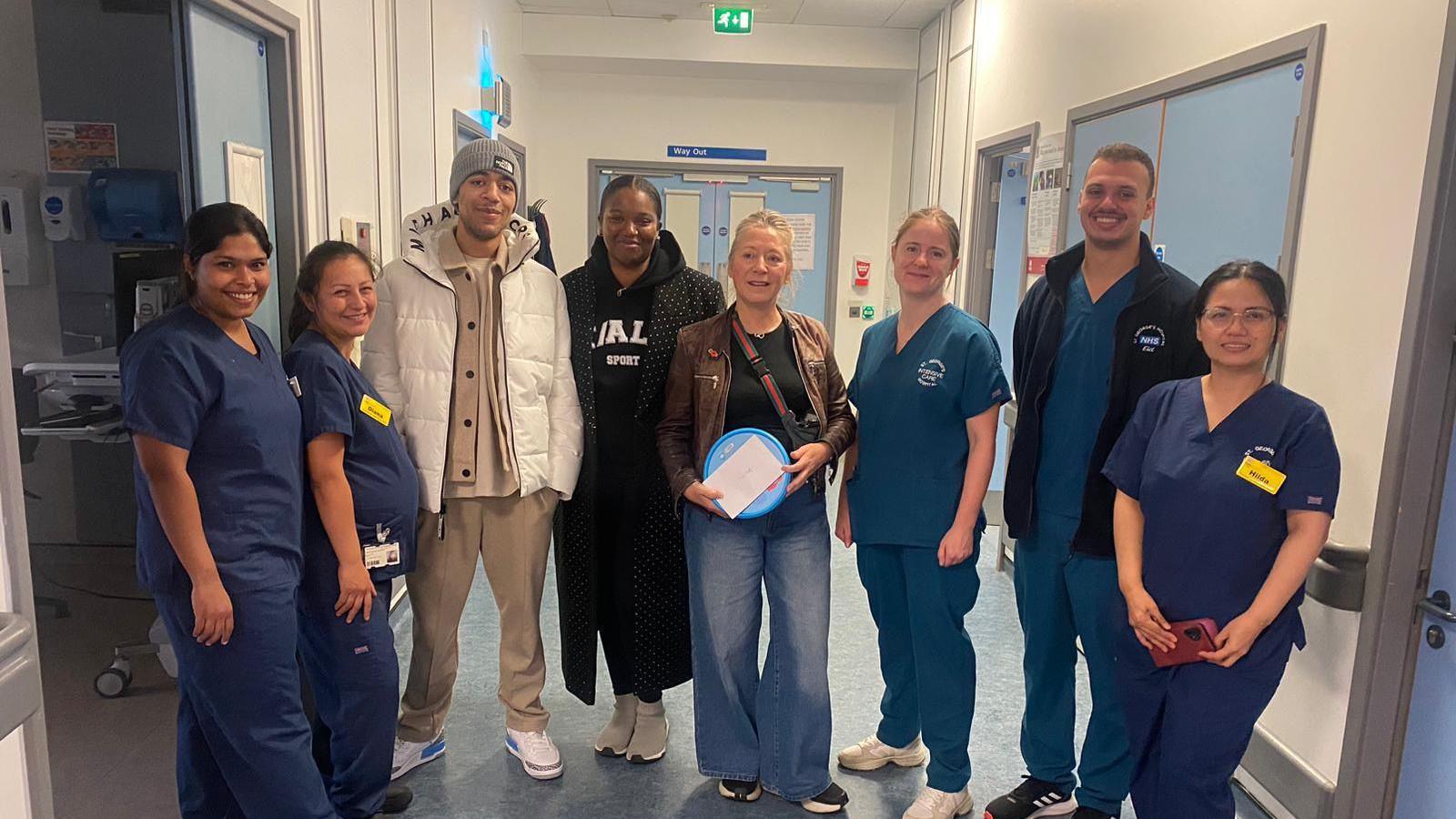
Alongside his family, Mr Sarpong recently visited the team that treated him
Alongside his family, he recently revisited the hospital team that cared for him to thank the staff.
"It's weird because I can't remember any of the nurses, but everyone remembers me," he said.
"It was nice to thank everyone because, really, I think they did their best and I'm here now, thankfully, to them."
Since the incident, Mr Sarpong has been told his brain will take a couple of years to fully recover, and that he should never take part in boxing again.
"I'm still trying to get my head around it, honestly, because that was my main, my main focus and my main thing in my life," he said.
Get in touch
Do you have a story BBC Oxfordshire should cover?
You can follow BBC Oxfordshire on Facebook, external, X (Twitter), external, or Instagram, external.
Related topics
- Published12 October 2024
